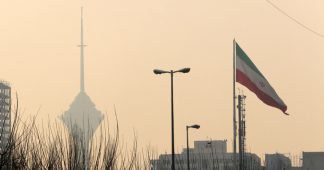By
August 14, 2019
Abbas Kebriaeezadeh, a professor of pharmacology from Iran, outlines the harmful effects that U.S. sanctions are having on Iranians’ access to medicine:
Last month, the U.S. Department of State released a video addressed to the people of Iran. In the video, Trump administration official Brian Hook claims that it is a “myth” that sanctions target Iran’s access to medicine. For more than a decade, my fellow Iranian medical professionals and I have been struggling to protect patients from the fallout of U.S. sanctions. We have studied sanctions impacts on Iran’s health care sector and advocated for better responses from our own government. Our findings make clear that the harms being inflicted on Iranian patients are not mythology.
It does Iranian patients no good to say that medicine is exempted when the medicines they need cannot be imported and the cost of their treatment shoots up because of dwindling supplies. There have been many reliable reports of how sanctions have resulted in shortages of medicines, especially for cancer patients, but the administration continues to pretend that their policy isn’t causing the problem. “Maximum pressure” is preventing sick people from getting the treatment they need to live. The administration could relax sanctions, identify specific channels that business and banks could use to process these transactions, or cooperate with other governments that try to set up humanitarian channels of their own, but it isn’t doing any of those things:
Responsible leaders in the United States recognize that there is little to gain by smothering humanitarian trade. European governments have sought clarity on humanitarian trade, only to be rebuffed. This forced France, Germany, and the United Kingdom to establish a special purpose vehicle, called INSTEX, to try to facilitate humanitarian trade. Iranians welcome this move, but the United States should not shirk its moral responsibilities. The Swiss government is negotiating directly with the Trump administration on a banking channel for humanitarian trade, but its efforts have so far been blocked by officials who are seeking the most extreme interpretation of “maximum pressure.” Iran’s European suppliers understand that this situation is dire, but the Trump administration remains unaccommodating.
Kebriaeezadeh identifies three ways that the sanctions prevent the import and the manufacture of medicine. Because the sanctions make it difficult if not impossible to process payment to import medicines, there are shortages and skyrocketing prices. Even when some of these medicines are available, they have been made prohibitively expensive:
Just as with raw materials, banking restrictions have made it more difficult for Iranian importers to pay European and Asian suppliers for medicine. Shortages of imported medicines and skyrocketing costs are putting the most vulnerable patients—those with rare or advanced diseases—at the greatest risk.
Iran manufactures most medicine domestically, but many of the medications require imported materials, and these are affected by banking restrictions in the same way as imported medicines:
Second, sanctions interrupt domestic production by interrupting supply chains. Iran’s pharmaceutical manufacturers use over 10,000 different compounds in their production processes. The pressure of U.S. sanctions and the chilling effect on international banks have already made it impossible for many suppliers to reliably receive payment for raw materials sold to Iran. Some medications require 15 substances from different manufacturers in various countries in order to be produced. The absence of even one substance brings the production of that medicine to a halt.
The sanctions not only prevent Iranians from obtaining medicine from the outside, but they also deprive domestic manufacturers of the means to make their own. That affects a larger number of medications, and consequently it will affect many more people that need those medications for their illnesses. Adding to all of this misery are the broader economic effects of the sanctions that drive up costs and make the treatments that are available much more expensive for people whose earnings and savings are also being destroyed by the economic effects of the sanctions.
Kebriaeezadeh sums up:
What may seem like sterile banking sanctions are truly much more dangerous. These sanctions disrupt the access of the Iranian public—especially the poor, the elderly, children, women, and patients suffering from chronic diseases—to the medications they require.
Medicines become more expensive and of worse quality. An unreliable supply chain leads to incomplete treatment of diseases and their becoming chronic. The crisis deepens when the slowdown in domestic production increases the country’s need to import drugs. All this is happening against the backdrop of the Iranian government’s strained resources as it is forced to import medicines at a higher price tag in those instances when a banking channel is available.
It is no exaggeration to say that U.S. sanctions kill Iranians, and they impoverish the people that they don’t kill. The burden of these sanctions falls hardest on the weakest and most in need. It bears repeating that all of this is entirely unnecessary, and our government is inflicting this hardship and suffering on the Iranian people in a vain effort at regime change. Our government is using cruel and unjust means to pursue an unrealistic goal. It can’t be stressed enough that the U.S. has no right to do this, and the economic war the administration is waging on the Iranian people cannot be justified.
Published at https://www.theamericanconservative.com/larison/how-sanctions-kill-iranians/











